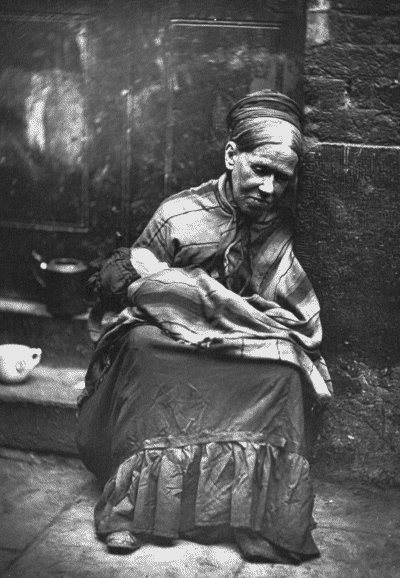The Darwinian revolution in biology opened the way for a new conviction that man is an animal deserving the title Homo sapiens. The path was an exciting one, following the pioneering efforts of secularists like the eighteenth-century philosophes to establish a utopia in which man would, having vainly sought paradise for centuries, finally find fulfillment in a spiritually untransformed and godless cosmos. By the time Darwin died in 1882, man as imago Dei–the “image of God”–seemed irrecoverable.
Yet by discarding a divinely transcendent vision of man, the West stumbled into the greatest anthropological morass of its history.
One very early signpost of the nihilism to come was what most historians call “social Darwinism.” This was the formal application of evolutionary theory to human social relationships. In The Origin of the Species, Darwin introduced a principle called “natural selection” by which members of a given species are locked in a struggle for existence due to the scarcity of food and mates. Only the strongest members succeed in acquiring both, and they do so through violence. The theory was perfectly scientific in its premise. Drop two rats into a single cage with enough food to feed only one, and the rat with sharpest teeth and longest claws–to say nothing of the strongest impulse toward aggression–will survive.
It is interesting and telling to note that Darwin conceived the principle of “survival of the fittest” within a very specific historical context, the industrial revolution. Nineteenth-century England was being overwhelmed with the social effects of capitalism. Factory owners were eager to produce commodities at the lowest possible price to master the free market, often driving less fit capitalist competitors out of business. And to drive prices down, it was necessary to pay workers as little as necessary to keep them in production at the factory. Since factory work was an attractive alternative to agriculture, there were more workers seeking employment than could be employed by the free market. Thus a merciless struggle for existence drove the working class as well. The employee who sacrificed his health (as well as time with his family) for the factory would remain employed, enabling him to support a wife and raise a family. The employee who habitually showed up late or hungover would be fired. And the family of even the fittest of workers were out of luck should he perish from an accident, perhaps caused by factory machinery.

In my book The Age of Utopia, I imagine the widow and children of such a worker standing on a cold and rainy street in central London. I call the woman Mrs. Gumdrop as an allusion to the widow Marmeladova (whose name literally means “gumdrop” in Russian) in Dostoevsky’s contemporary novel Crime and Punishment. I place this woman and her desperate children on the sidewalk before an alms jar, waiting for passersby to assist them. One such passerby I imagine to be Charles Darwin, on his way to the London Library where he was then engaged in research for Origin. He would presumably have been wearing a top hat, the mark of a middle class gentleman. One can see through the cold mist the eyes of the children as they spot their potential benefactor approaching, though he would no doubt have his head lowered in meditation on the traits of Galapagos Islands iguanas. Perhaps Mrs. Gumdrop notices him as well, and produces a dramatic cough to accent the dampness.
Coming alongside this unfit huddle of street denizens, Darwin stops and looks down at the jar. Does he add to its contents?
Yes, I imagine he does. For though he may have equipped utopia with its most effective means of subverting traditional Christianity’s doctrine of man as the image of God, he is, after all, the contemporary (and namesake) of Charles Dickens, whose novels represented a sentimentalized but nonetheless beautiful effort to restore the principles of sympathy and charity at a time of cultural dissolution (Dostoevsky was influenced by them). I can even imagine the gentleman scientist tipping his top hat and offering a smile of encouragement to the widow as he resumes his stroll to the London Library.
But there would be other intellectuals who in years to come would travel down what might be called Mrs. Gumdrop Street. As social Darwinists, many of them would find it far more difficult to offer charity to its poor and vulnerable denizens because, in a civilization with a supporting culture that no longer directs its members toward the kingdom of heaven, the principle of natural selection had become so convincing.
I’m curious to know, why did you place this piece under “Intellectuals”?
LikeLike
Thanks, Nan. I did so because Darwin, while a scientist, exercised enormous influence over the intellectuals who followed him. I hope to return to the thread of anthropology soon to explore some of those intellectuals (such as Herbert Spencer and Karl Marx).
LikeLike